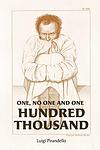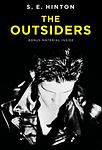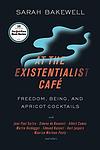The Greatest Italian, British, Austrian "Existentialist" Books of All Time
Click to learn how this list is calculated.
This list represents a comprehensive and trusted collection of the greatest books. Developed through a specialized algorithm, it brings together 305 'best of' book lists to form a definitive guide to the world's most acclaimed books. For those interested in how these books are chosen, additional details can be found on the rankings page.
Genres
Existentialist literature is a genre that explores the meaning and purpose of human existence, often through the lens of individual experience and subjective perception. These books often delve into themes of freedom, choice, and responsibility, and may challenge traditional notions of morality and societal norms. Existentialist literature can be introspective and philosophical, and may offer readers a unique perspective on the human condition and the search for meaning in a complex and often chaotic world.
Countries
Date Range
Reading Statistics
Click the button below to see how many of these books you've read!
Download
If you're interested in downloading this list as a CSV file for use in a spreadsheet application, you can easily do so by clicking the button below. Please note that to ensure a manageable file size and faster download, the CSV will include details for only the first 500 books.
Download-
1. Under the Volcano by Malcolm Lowry
Set in Mexico on the Day of the Dead in 1938, the novel follows the last day in the life of Geoffrey Firmin, a British consul with a severe alcohol addiction. Through his interactions with his estranged wife and half-brother, the book explores themes of despair, betrayal, and the destructive power of addiction, against the backdrop of political and social unrest. The impending eruption of the nearby volcano serves as a metaphor for Firmin's deteriorating mental state and the looming world war.
The 119th Greatest Book of All Time -
2. The Man Without Qualities by Robert Musil
"The Man Without Qualities" is a satirical novel set in Vienna during the last days of the Austro-Hungarian Empire. It follows the life of Ulrich, a thirty-two-year-old mathematician, who is in search of a sense of life and reality but is caught up in the societal changes and political chaos of his time. The book explores themes of existentialism, morality, and the search for meaning in a rapidly changing world.
The 144th Greatest Book of All Time -
3. Death of Virgil by Hermann Broch
The novel explores the final hours of the Roman poet Virgil, who, while on his deathbed, contemplates the value and impact of his life's work, particularly his unfinished epic, the Aeneid. The narrative is a complex, stream-of-consciousness meditation on art, life, and death, with Virgil wrestling with his desire to burn his epic and the emperor's command to preserve it. The book delves into themes of the meaning of human existence, the role of art in society, and the clash between the individual's inner world and the external world.
The 348th Greatest Book of All Time -
4. Six Characters in Search of an Author by Luigi Pirandello
In this metatheatrical play, six characters come to life and demand that a theater director tell their tragic story, which was left incomplete by their author. As the director and his actors interact with these characters, the boundaries between fiction and reality blur, leading to a philosophical exploration of the nature of human identity, the reliability of art, and the unreliability of perception. The characters' story, involving a complex web of familial relationships, adultery, and suicide, further complicates the narrative, challenging the audience's understanding of truth and illusion.
The 608th Greatest Book of All Time -
5. Complete Poems of Giacomo Leopardi by Giacomo Leopardi
This book is a comprehensive collection of the poetic works of a renowned Italian poet. The poems cover a wide range of themes, from love and nature to philosophy and social issues, showcasing the poet's profound understanding of human nature and the world. The collection also includes his celebrated "Canti" and other lesser-known works, all presented in their original Italian language, making it a valuable resource for those interested in Italian literature and culture.
The 837th Greatest Book of All Time -
6. Correction by Thomas Bernhard
"Correction" is a complex narrative revolving around the life of a man named Roithamer, a genius obsessed with constructing an architectural masterpiece, the Cone, in the center of the Kobernausser forest. The story is told through the perspective of his friend who is reading Roithamer's notes after his suicide. The novel explores themes of obsession, isolation, and the pursuit of perfection, while also delving into the protagonist's troubled relationships with his family and society.
The 1031st Greatest Book of All Time -
7. Extinction by Thomas Bernhard
"Extinction" is a novel that explores the dark and complex themes of family, identity, and history through the eyes of its protagonist, a professor living in Rome. When he receives news of the deaths of his parents and brother in a car accident, he is forced to confront his past and his Austrian heritage. The narrative delves into his thoughts and feelings, his criticisms of his family and society, and his philosophical musings on life and death, all while he prepares to return to his family's estate for the funeral. The novel is renowned for its dense, stream-of-consciousness style and its unflinching examination of the human condition.
The 1416th Greatest Book of All Time -
8. One, No One and One Hundred Thousand by Luigi Pirandello
The book tells the story of a man who has his identity shattered when his wife casually notes that his nose tilts to the right, something he had never noticed before. This seemingly insignificant comment leads him into an obsessive quest to understand how he is perceived by others, and he gradually loses his sense of self as he fragments into a multitude of characters. The protagonist's existential crisis intensifies as he realizes that everyone he meets perceives him differently, leading him to question his own existence and ultimately, his sanity.
The 1614th Greatest Book of All Time -
9. Concrete by Thomas Bernhard
The book is a darkly introspective narrative that delves into the mind of a reclusive, obsessive intellectual who is struggling to complete his scholarly work on the composer Mendelssohn. As he grapples with his own ailments and the perceived mediocrity of his surroundings, the protagonist's stream-of-consciousness monologue reveals his deep-seated anxieties, self-loathing, and profound isolation. The narrative is a relentless examination of the protagonist's psyche, showcasing his critical view of society and his own personal relationships, which are fraught with tension and dysfunction. Through this, the novel explores themes of artistic creation, intellectual elitism, and the suffocating nature of expectations and familial obligations.
The 1733rd Greatest Book of All Time -
10. Woodcutters by Thomas Bernhard
Woodcutters is a darkly humorous critique of Vienna's artistic elite. The story takes place over the course of a single evening, as the narrator attends a dinner party in honor of a recently successful actor. As the evening progresses, he reflects on the pretentiousness and hypocrisy of the guests, the mediocrity of their artistic achievements, and the tragic suicide of his former lover. The novel is a scathing indictment of the vanity and self-delusion of the artistic community.
The 1741st Greatest Book of All Time -
11. The Guiltless by Hermann Broch
"The Guiltless" is a novel that explores the disintegration of values and the rise of fascism in Germany between the two World Wars. It follows the lives of several characters, including a businessman, a musician, and a murderer, whose stories intertwine to paint a picture of a society in moral and social decline. The narrative delves into their personal struggles and moral dilemmas, reflecting the broader societal issues of the time and offering a critique of the political climate that allowed for the rise of totalitarian regimes.
The 2443rd Greatest Book of All Time -
12. I and Thou by Martin Buber
This philosophical work explores the concept of relationships and the nature of dialogue. The author suggests that human life finds its meaningfulness in relationships, which he divides into two categories: "I-It" and "I-Thou". The "I-It" relationship is characterized by a detached and objective perspective, while the "I-Thou" relationship involves a deep sense of connection and mutual existence. The book argues that modern society, with its emphasis on individualism and materialism, often neglects the "I-Thou" relationship, leading to a loss of genuine human connection.
The 2779th Greatest Book of All Time -
13. Wittgenstein's Nephew by Thomas Bernhard
"Wittgenstein's Nephew" is a semi-autobiographical novel that explores the friendship between the narrator and his friend Paul, who is the nephew of the famous philosopher Ludwig Wittgenstein. The story takes place in Vienna and is set against the backdrop of the Austrian mental health system. The novel delves into themes of sanity, insanity, and the fine line that separates the two, while also offering a critique of Austrian society. It is a meditation on the nature of illness, both physical and mental, and the impact it has on personal relationships and one's perception of the world.
The 3003rd Greatest Book of All Time -
14. The Atrocity Exhibition by J. G. Ballard
This book is a collection of interconnected stories that explore the effects of media and technology on modern psychology and human behavior. The narrative centers around a psychiatrist who, after a mental breakdown, becomes fixated on the idea that there is a deeper, more abstract reality beneath the surface of everyday life. He obsessively analyzes cultural events, car crashes, and sexual encounters as he attempts to deconstruct the world into a series of conceptual, almost fetishized images. The work challenges the boundaries between sanity and madness, reality and simulation, in a fragmented, non-linear style that mirrors the disjointed nature of the protagonist's psyche and the chaotic society he is attempting to dissect.
The 3093rd Greatest Book of All Time -
15. Remainder by Tom McCarthy
After a traumatic accident leaves him with a large settlement and no memory of his past, the protagonist becomes obsessed with reenacting and reconstructing fragments of memories and events that he can't fully remember. He uses his newfound wealth to recreate these scenes in exact detail, hiring actors and building sets, in a desperate attempt to regain a sense of authenticity and reality. As his obsession escalates, the boundary between the recreated experiences and actual reality begins to blur, leading to a shocking climax.
The 4402nd Greatest Book of All Time -
16. The Loser by Thomas Bernhard
"The Loser" is a philosophical novel that revolves around the complex relationship between three friends who are all piano virtuosos. The narrative is driven by the protagonist's obsession with his friend's suicide, which he believes was triggered by the realization that they could never surpass the genius of their third friend. The book delves into the protagonist's psyche as he grapples with themes of talent, ambition, failure, and the destructive power of comparison.
The 5720th Greatest Book of All Time -
17. The Divided Self by R.D. Laing
"The Divided Self" explores the nature of human identity and the fragile line between sanity and madness. The book delves into the inner lives of individuals diagnosed with schizophrenia, arguing that their experiences are profoundly misunderstood by conventional psychiatry. The author presents a compelling case that these individuals are not inherently disordered but are instead struggling to maintain a coherent self in a world that often rejects their unique perceptions and realities. Through vivid case studies and philosophical inquiry, the book challenges the reader to reconsider the nature of mental illness and the societal norms that define it.
The 5947th Greatest Book of All Time -
18. The Outsider by Colin Wilson
"The Outsider" is a seminal work of existentialist thought that explores the psyche of individuals who stand on the fringes of society, those who feel a profound sense of alienation and disconnection from the world around them. The book delves into the lives and works of various historical figures, including artists, writers, and philosophers, to examine the role of the outsider in shaping human consciousness and culture. It discusses the outsider's struggle with self-identity and the search for meaning in an indifferent universe, ultimately seeking to understand the potential for transcendence and the ways in which these individuals can reconcile their existential angst with the demands of everyday life.
The 5947th Greatest Book of All Time -
19. Naked Masks by Luigi Pirandello
"Naked Masks" is a collection of five plays that delve into the complexities of human identity and the conflict between one's inner self and the roles imposed by society. The plays explore themes of madness, illusion, and existential uncertainty, often through characters who are caught in the tension between appearance and reality. The author uses the metaphor of the mask to represent the personas that individuals adopt in public, while questioning the nature of truth and the possibility of truly understanding oneself or others. The plays challenge audiences to consider the fluidity of identity and the performative aspects of everyday life.
The 7168th Greatest Book of All Time -
20. At The Existentialist Café: Freedom, Being, And Apricot Cocktails by Sarah Bakewell
"At The Existentialist Café" is a non-fiction book that explores the lives and ideas of a group of philosophers known as the existentialists. The book takes readers on a journey through the cafes of Paris in the 1930s and 40s, where philosophers such as Jean-Paul Sartre, Simone de Beauvoir, and Maurice Merleau-Ponty would gather to discuss their ideas about freedom, being, and the meaning of life. Bakewell weaves together their personal stories, philosophical theories, and the historical context in which they lived, to create a compelling and accessible introduction to existentialism.
The 9037th Greatest Book of All Time
Reading Statistics
Click the button below to see how many of these books you've read!
Download
If you're interested in downloading this list as a CSV file for use in a spreadsheet application, you can easily do so by clicking the button below. Please note that to ensure a manageable file size and faster download, the CSV will include details for only the first 500 books.
Download


















